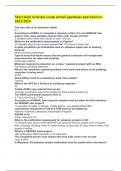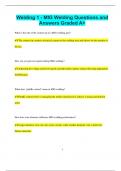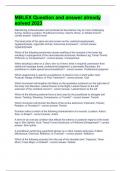Class notes
International Relations in Africa (Term 3 Class Notes)
- Course
- Institution
International Relations in Africa Class Notes - includes tips for the Semester Test - includes tips for the Semester Essay - detailed notes on class discussions
[Show more]











